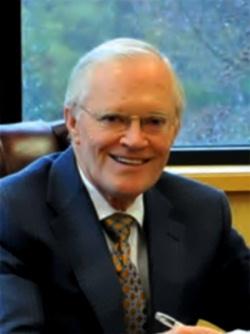Who Owns the North?
"The True North strong and free!" This exclamation from Canada's national anthem has long illustrated the feeling this vast nation holds for what it so deeply values as its northernmost territory. In recent years, however, this patriotic assertion has come under fire, with neighbouring nations making similar proclamations of ownership regarding the North Pole.
Several claims now sit before the United Nations in an effort to answer an important question: Who owns the North Pole—and, perhaps more importantly, the resources that lie under the northern tip of our planet?
With the majority of Canada's population settled along its southern border, less than 1 percent of Canadians live above the Arctic Circle. Most Canadians will never even visit these distant and majestic northern lands, yet they are widely seen as a core aspect of Canada's national identity. Stretching deep into the Arctic Ocean, the Canadian Arctic Archipelago covers more than 1.4 million square kilometers and includes three of the world's ten largest islands. It is home to the Northwest Passage, a shipping lane treated as international waters by the United States and the European Union, but claimed by Canada as sovereign territory—a dispute of growing importance if Arctic ice continues to melt.
As early as 1925, Canada declared sovereignty over the waters between the 60th and 141st western meridians, an immense area of the Arctic Ocean culminating at the North Pole. Soon after, other nations—first the USSR, then Norway, the United States and Denmark—made similar claims to portions of the Arctic. To Canadians, not only is their claim a way of asserting control of the valuable Northwest Passage; it upholds a vital point of national pride.
Modern Claims to the North
Currently, the United Nations Convention on the Law of the Sea allows nations to claim the waters extending 200 nautical miles (370 kilometers) from their coast. A nation can submit a claim to extend its boundaries if it can prove the continental shelf stemming from their coast extends beyond the current border. Scientists from Canada, Russia and Denmark are each now trying to prove that the Lomonosov Ridge—running 1,800 kilometers from the top of Ellesmere Island across the North Pole and back south through Russian waters—is an extension of their continental shelf.
In 2002, Russia submitted a formal claim seeking recognition of Russian sovereignty over an extended northern boundary. This claim was quickly sent back for lack of scientific evidence (CBC News, "Russia Submits Claim for Vast Arctic Seabed Territories at U.N."). Russia further attempted to stake its claim in 2007 when a submersible planted a Russian flag on the seabed at the North Pole. At the time, Boris Gryzlov, Chairman of the State Duma, declared that "our country remains the leader in conquering the Arctic" (National Post, "Russian Sub Plants Flag Under North Pole").
Not to be outdone, Canada filed a partial claim with the United Nations in December of 2013, outlining the extent to which the government believed Canada's jurisdiction should be extended while indicating that "it will make a pitch for the North Pole in a later submission" (Toronto Star, "Why Canada's Race to Claim the North Pole Could Backfire").
The U.N. commission faces such a backlog of submissions that a best-case scenario could see a decision reached in ten years.
Oil, Gas and Putin's Ambition
Why has sovereignty over this region become such a highly contested issue? The answer—as is often the case in today's world—involves natural resources. Immense oil and natural gas deposits have given increased value to the region. A 2008 U.S. Geological Survey reported: "These resources account for about 22 percent of the undiscovered, technically recoverable resources in the world. The Arctic accounts for about 13 percent of the undiscovered oil, 30 percent of the undiscovered natural gas, and 20 percent of the undiscovered natural gas liquids in the world" (USGS Newsroom, "90 Billion Barrels of Oil and 1,670 Trillion Feet of Natural Gas Assessed in Arctic"). The USGS estimate of 90 billion barrels of oil would be valued, even at a modest $35 per barrel, at $3.15 trillion! It is no wonder that Canada, Russia and others are in a hurry to lay claim to a portion of this wealth. While many consider these resources too expensive to secure, at current oil prices, further instability in the Middle East, Russia or Ukraine leading to a spike in the cost of oil or natural gas could thrust these deposits into even greater limelight.
With such valuable resources at stake and any U.N. resolution at least a decade away, is there any doubt nations will seek other means to establish dominance over the north? While many focus on Russia's aggressive actions in the Ukraine, Georgia and now into the Middle East in Syria, few have noticed the emphasis being placed on increasing military capabilities in the north. Exerting power in the Arctic has been a priority for Russian president Vladimir Putin. Last March, Putin "oversaw the largest Arctic war games ever: 35,000 Russian troops, 50 surface ships and submarines along with 110 aircraft" (CBC News, "Forget Syria, Russia's Muscle is Moving Closer to Canada's Doorstep"). He has recently set up an "Arctic Joint Strategic Command North, consisting of two motorized brigades and Pantsir-S1 anti-air missiles. Moscow is also constructing four Arctic outpost bases as well as airfields and new radar stations" (ibid.). Gryzlov's proclamation of Russia as "the leader in conquering the Arctic" has suddenly become much more relevant.
Who Really Owns the North?
Nations stake claims to territory in a variety of ways. Planting flags, declarations of sovereignty, submissions to United Nations commissions and flexing of military muscle are but a few. What does God think of such declarations? It is prudent for a Christian to try to see world events from the perspective of the Almighty. Speaking of Jesus Christ, scripture tells us that "by Him all things were created that are in heaven and on earth… All things were created through Him and for Him" (Colossians 1:16). We also understand that "the Most High God rules in the kingdom of men, and appoints over it whomever He chooses" (Daniel 5:21). God is not persuaded by the planting of flags or flexing of military might.
Tomorrow's World looks forward to Jesus Christ returning to inherit all of His creation—including the North Pole (Zechariah 14:9)! He will give rulership to His saints (Revelation 5:10) even giving some individuals responsibility over tribes (Matthew 19:28) and nations (Ezekiel 37:24). Ezekiel 47–48 even describes Christ setting national boundaries. It is only under His authority and by His direction that disputes over territory, waterways and resources will ultimately come to an end. So, we have our answer to the question: "Who owns the North Pole?" Jesus Christ does, and He is looking for humble men and women with whom he can work, who will submit to Him and develop in themselves His holy and righteous character, that they too may inherit it (Psalm 37:11, 22; Matthew 5:5) in Tomorrow's World!






